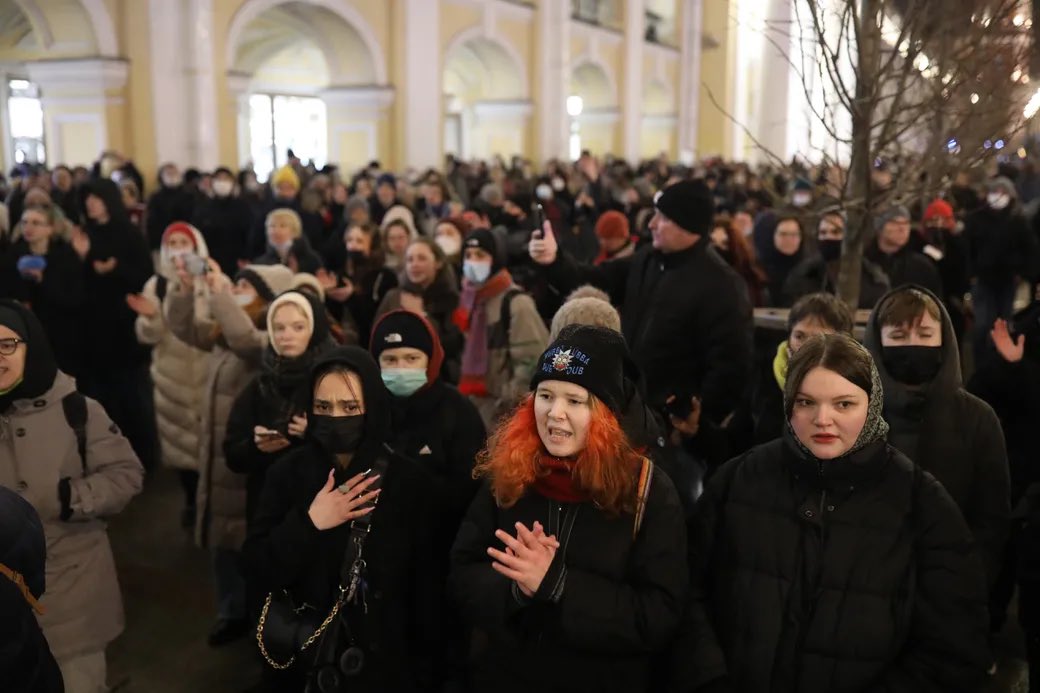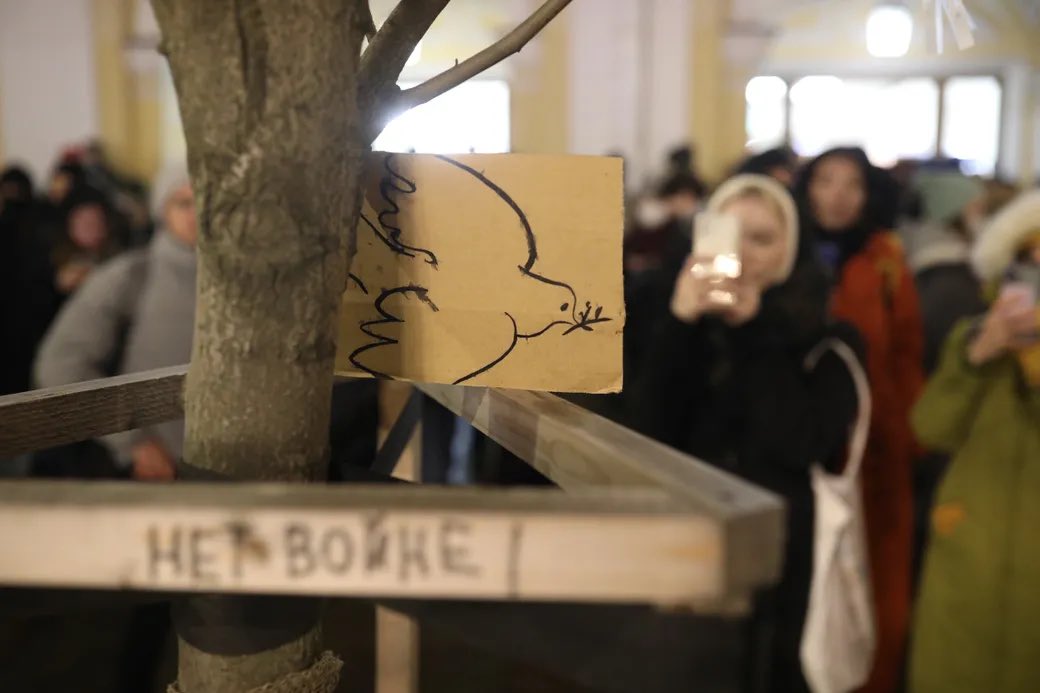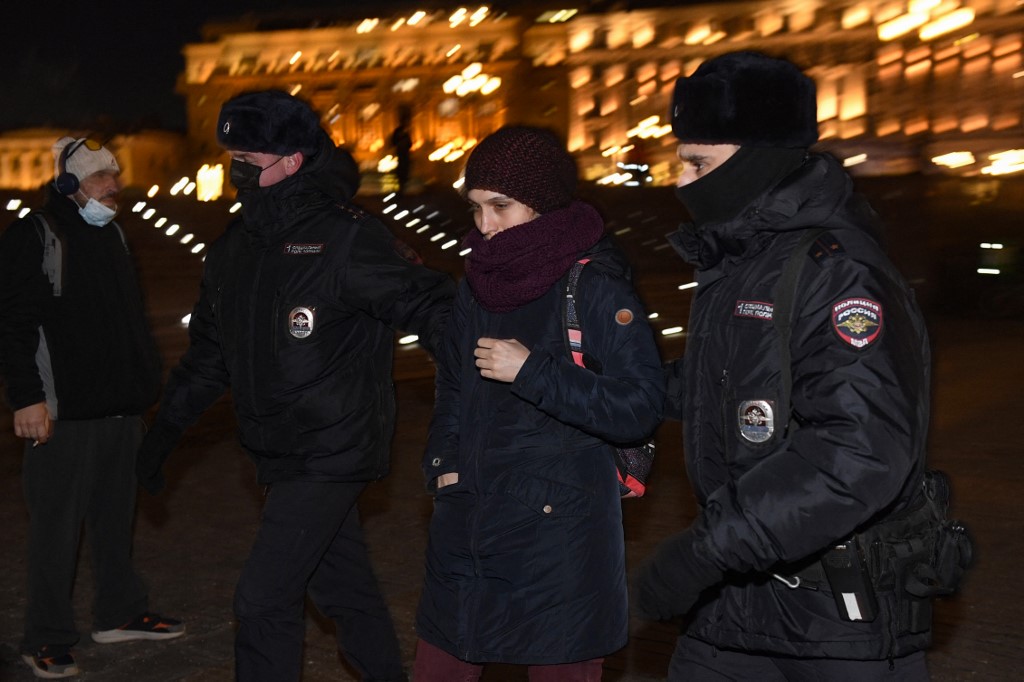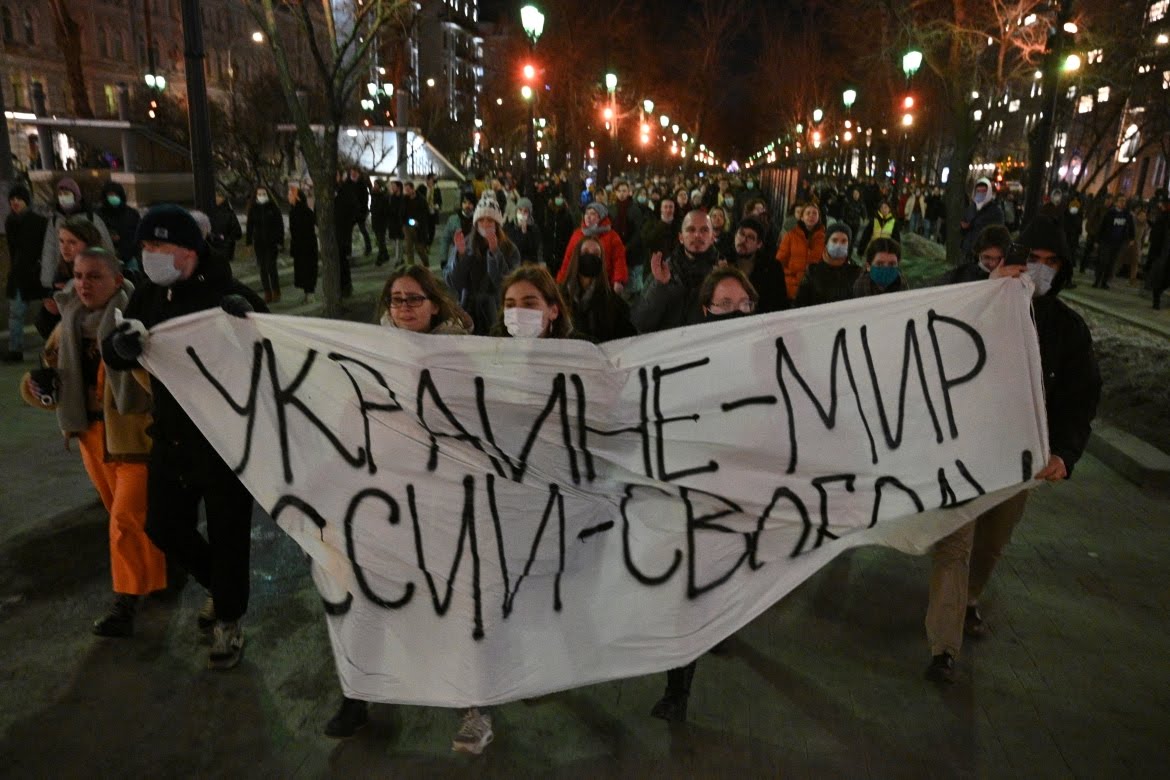Thu 10 March 2022:
As Russia’s war in Ukraine intensifies, so has defiance back home where police arrest thousands of protesters.
More than 5,000 people were arrested in Russia while taking part in demonstrations against Moscow’s war against Ukraine in 69 cities across the country on Sunday alone, according to the OVD-Info monitoring group.
That compares with 1,900 protesters arrested on February 24, the day of the start of Russia’s full-scale invasion in Ukraine – a rise of 160 percent.
As protests intensify, so too do efforts by the police force to disperse them, with dozens suffering beatings from truncheons or being shocked with stun guns after already being held down by officers.
Women held at Moscow’s Bratayevo police station say they were punched, kicked, waterboarded and threatened with rape.
Two women managed to discreetly record their ordeal and handed over the audio to Russia’s independent newspaper Novaya Gazeta, which has filed an official complaint.
Several journalists were also detained, as were children, bringing the total to 13,000 arrests in 140 cities since the war began.
“Not Russia attacked Ukraine, but Putin,” Navalny’s blog read, referring to Russia’s longtime leader Vladimir Putin.
“It was Putin who wanted to bomb peaceful cities, kill children and destroy lives. The Russians were not asked if they wanted war. In Russia, which we love and are proud of, millions of people are against this madness. And now their help is needed more than ever,” he said.
“You may be scared, but to succumb to this fear means to take the side of the fascists and murderers … Don’t give in to fear, take to the streets, let the whole world see that Putin is not Russia,” Navalny added.
Advertisements placed online told protesters to gather in the heart of their cities at 2pm on Sundays, as well as 7pm every weekday.
This tactic is not new, Ruslan Shaveddinov, project manager of Navalny’s Anti-Corruption Foundation (FBK), told Al Jazeera.
“We use all means of communication with society available to us to motivate and call them to take to the streets, because there is no other way to protest the authorities in our country under [Russian President Vladimir] Putin. We have been using advertising on social networks all these years, informing about rallies,” he said.
“Our websites are regularly blocked, we’re pressed with criminal charges, and all other instruments of repression,” Shaveddinov added. “We’ve learned to work in these conditions, keeping our employees as safe as it is possible.”
The anti-corruption fighter
Navalny rose to fame as a blogger focused on a problem that mattered to all Russians, corruption, coining the term “the party of crooks and thieves” for Putin’s United Russia.
He was arrested and imprisoned early last year after flying to Germany for treatment after surviving an apparent poisoning, which broke his parole conditions on an earlier charge widely seen as politically motivated.
A couple of months later, the FBK was declared “an extremist organisation” and outlawed. Nevertheless, it continues its work, offering to pay the fines of people arrested at peace rallies and help them file complaints with the European Court of Human Rights.
Shaveddinov has hope that the tide may be turning.
“Our sociological surveys show a clear upward trend in anti-war sentiment,” he said. “War is a catastrophe that is already causing enormous damage to Russia, and over time, everyone will feel the deterioration of life.
“We know that the Kremlin actively monitors public sentiment. Therefore, it is extremely important that people speak out, which is what we encourage them to do. This is one of the factors that can really stop the war,” said Shaveddinov.
Opinion polls
A poll carried out by Navalny’s team asked 700 Muscovites what they thought about current events. It found that between February 25 and March 3, the number of those blaming the West for the war halved, while those blaming Russia more than doubled.
Meanwhile, more than half believed Russia’s economy was on the verge of collapse, and a vast majority wanted to cease all hostilities and all parties to take a seat at the negotiating table.
Other surveys are less optimistic.
In early March, the Russian Field research group, together with YouTuber Maxim Katz, polled 1,606 Russians of varying ages across the country and found that support for the “special peacekeeping operation”, as the war is referred to in Russia, had risen to more than 60 percent.
But the researchers note that public opinion is fluid, and new laws which criminalise speaking out against the official narrative may have left their subjects not entirely truthful.
“I really want outsiders to know that Putin is not Russia,” Shaveddinov said. “Russians don’t want war. The war was unleashed personally by Putin and his entourage.”
____________________________________________________________________________________________________________________________________________
FOLLOW INDEPENDENT PRESS:
TWITTER (CLICK HERE)
https://twitter.com/IpIndependent
FACEBOOK (CLICK HERE)
https://web.facebook.com/ipindependent
Think your friends would be interested? Share this story!









